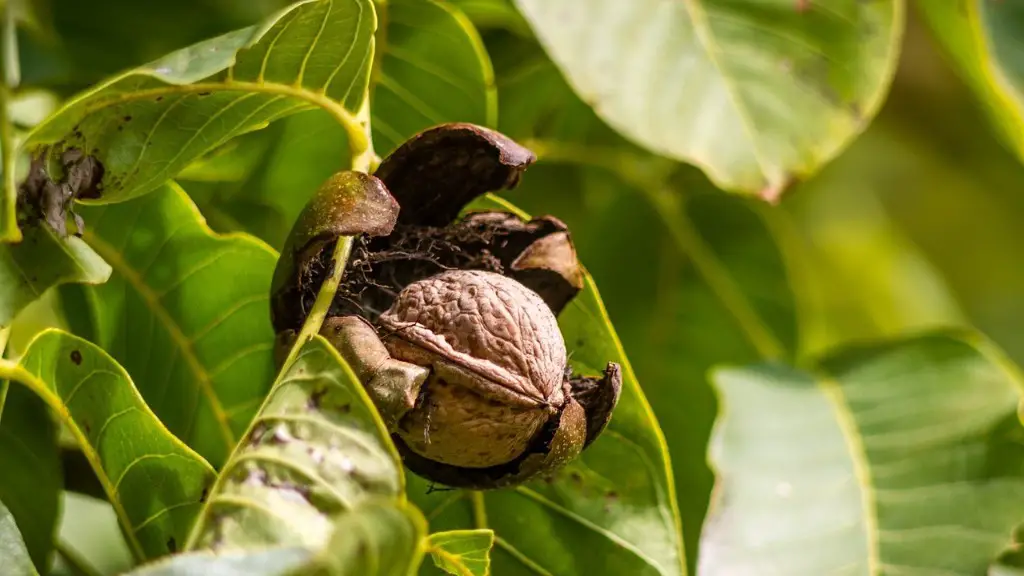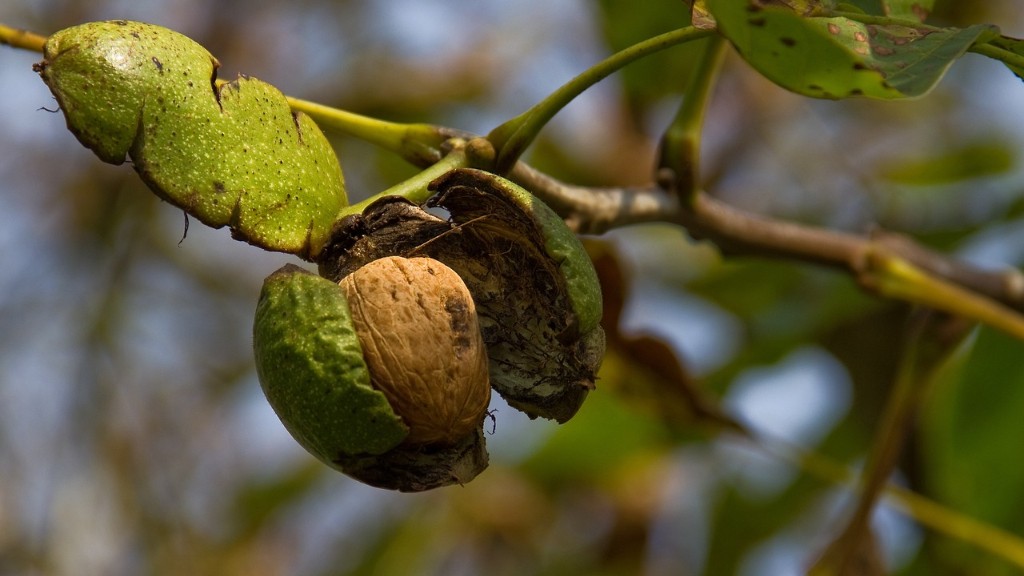There are many different types of tree nuts, including but not limited to almonds, Brazil nuts, cashews, hazelnuts, macadamia nuts, pecans, pine nuts, walnuts, and more. It is possible to be allergic to one type of tree nut and not another. For example, someone may be allergic to hazelnuts but not almonds. It is also possible to be allergic to peanuts, which are not technically tree nuts, but are legumes.
Yes, you can be allergic to tree nuts and not peanuts.
Are tree nuts and peanuts the same allergy?
Proteins in peanuts are very different from those in tree nuts. Therefore, someone who is allergic to peanuts is not automatically allergic to tree nuts.
If you have a tree nut allergy, you may experience one or more of the following symptoms after eating tree nuts or coming into contact with them: abdominal pain, cramps, nausea and vomiting, difficulty swallowing, itching of the mouth, throat, eyes, skin or any other area, nasal congestion or a runny nose, shortness of breath, anaphylaxis (a potentially life-threatening reaction that impairs breathing and can send the body into shock). If you experience any of these symptoms, it is important to seek medical attention immediately.
Can you be allergic to only tree nuts
If you’re allergic to one type of tree nut, it’s possible that you’re only allergic to that one type and not to other types of tree nuts. However, it’s also possible to be allergic to a small number of nuts that share similar proteins. And in some cases, people are allergic to a wide range of nuts. If you’re not sure whether you’re allergic to all nuts, it’s important to see an allergist to get tested.
A tree nut allergy is a type of food allergy that is triggered by the consumption of tree nuts. The six tree nut allergies most commonly reported by children and adults are allergies to walnut, almond, hazelnut, pecan, cashew and pistachio. Tree nut allergies are among the most common food allergies in both children and adults, and can often be severe.
What should I avoid if I have a tree nut allergy?
Some breakfast cereals, candy, crackers, cookies, and chocolates may contain tree nuts. Energy bars, flavored coffee, frozen desserts, marinades, and barbeque sauces may also contain tree nuts. Some cold cuts, ice cream, and alcoholic beverages may be flavored with tree nuts. Lotions, shampoos, and soaps may also contain tree nuts.
A tree nut allergy is a potentially life-threatening condition that affects roughly 0.5 to 1% of the US population. Tree nuts grow on trees, and the most common tree nut allergies are from walnuts, almonds, hazelnuts, pecans, cashews and pistachios. Similar to peanuts, tree nuts are most often linked to anaphylaxis, a severe and potentially fatal reaction. If you have a tree nut allergy, it is important to avoid all tree nuts and products containing tree nuts, and to carry an epinephrine auto-injector with you at all times in case of accidental exposure.
Does Benadryl help with tree nut allergy?
If you think you are having an allergic reaction, it is important to act quickly. First, an injection of epinephrine (EpiPen or EpiPen Jr) should be given to reduce the severity of the reaction. Second, taking liquid diphenhydramine (Benadryl) at a dose of 5 mg for every 10 lb of body weight, up to a maximum dose of 75 mg, also is recommended.
Benadryl can be helpful for relieving mild symptoms of a peanut allergy, such as stomach discomfort, sneezing, itchiness in the mouth or nose, or a mild rash. However, it will not help with a severe allergic reaction, such as anaphylaxis. If you have a severe reaction to peanuts, you should seek emergency medical treatment immediately.
What Does a mild nut allergy feel like
If you have a peanut allergy, even a tiny amount of peanut can cause a serious reaction. Signs and symptoms of a peanut allergy can include:
Skin reactions, such as hives, redness or swelling
Itching or tingling in or around the mouth and throat
Digestive problems, such as diarrhea, stomach cramps, nausea or vomiting
Trouble breathing
Swelling of the face, throat or tongue
Drop in blood pressure, which can cause dizziness or fainting
If you have a severe peanut allergy, you may have a sudden, potentially life-threatening reaction known as anaphylaxis. Anaphylaxis can cause your throat or airway to swell, making it hard to breathe.
If you are allergic to one tree nut, it does not mean you’re allergic to all of them. In fact, most people aren’t. This is because tree nuts can contain similar problematic proteins. This is true of almonds and hazelnuts, walnuts and pecans, as well as pistachios and cashews.
Can I eat pine nuts if I have a nut allergy?
If you are allergic to nuts and seeds, you should avoid pine nuts. This is because most people who are allergic to nuts are also allergic to pine nuts.
An itchy, tingling feeling in the mouth is one of the most common symptoms of a food allergy. This feeling may be accompanied by other symptoms such as swelling of the lips, tongue, or throat; difficulty swallowing; hives; and trouble breathing. If you experience any of these symptoms after eating, you should seek medical attention immediately.
What is the least allergenic nut
If you’re looking for a delicious and allergen-free nut flavor, look no further than chestnuts, coconuts, hazelnuts, macadamia nuts, pecans, pine nuts, pistachios, or walnuts! These nuts are perfect for those with allergies or sensitivities, and they’re sure to please everyone with their delicious flavor. So next time you’re looking for a nutty treat, reach for one of these allergen-free nuts and enjoy!
If you’re concerned that you or your child may have a tree nut allergy, there are a few ways to test for it. A skin prick test is a safe and low-risk way to test for an allergy. This is done by lightly pricking the skin with an allergen. If you have a reaction, it will usually show up within 15 minutes. A blood test can also be done to measure the amount of specific IgE antibodies that the immune system has deployed in response to nut proteins. This can take a few days to get results. The most conclusive way to test for an allergy is an oral food challenge. This is done under medical supervision and involves gradually exposing the person to increasing amounts of the allergen. If a reaction occurs, it will usually happen within two hours.
Can you develop a tree nut allergy later in life?
There is currently no known cure for food allergies, and the only way to manage them is to avoid the allergenic food altogether. This can be a challenge, particularly if the food in question is something that you’re used to eating on a regular basis. While most food allergies do start in childhood, they can develop at any stage of life. In fact, millions of adults in the US have developed a sudden allergy to a food they’ve eaten their entire lives. Researchers do not know why it happens.
Although avocado is classified as a fruit, some studies have shown that it contains proteins that are similar to chestnuts. This means that if you are allergic to chestnuts, you may also have to avoid avocados.
Is there a cure for tree nut allergies
There is no cure for a tree nut allergy, however, experimental oral immunotherapy may help to build up tolerance to tree nuts. This therapy involves consuming increasing doses of an allergen, in this case tree nuts, to help the body become more resistant to the allergy. While there is no guarantee that this therapy will be effective, it is a promising option for those with a tree nut allergy.
If a child’s parents have a history of allergies, there is a greater chance that the child will also experience an allergy of some kind. However, it is possible for a child to be allergic to something that their parents are not allergic to. For example, a parent may be allergic to peanuts or shellfish, but the child may have a tree nut allergy.
Final Words
Yes, you can be allergic to tree nuts and not peanuts.
There is no definitive answer to this question as it is possible to be allergic to both tree nuts and peanuts or to just one or the other. Peanuts are a type of tree nut, so it is possible to be allergic to both. However, some people may only be allergic to peanuts and not to other tree nuts. It is also possible to be allergic to just one type of tree nut, such as almonds, without being allergic to peanuts.




